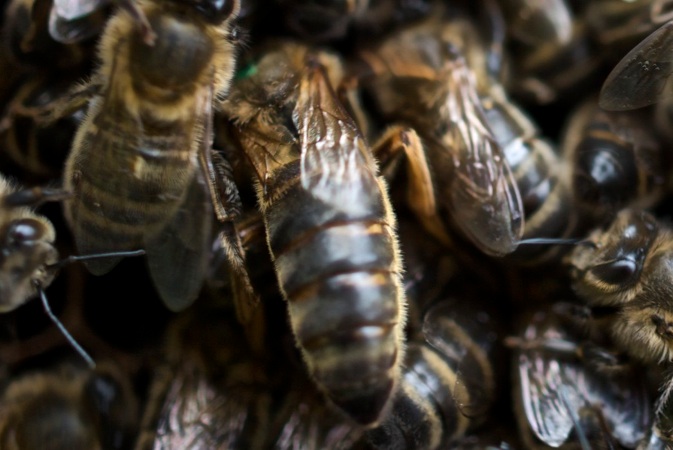Neonicotinoids and dying bees
The Independent has an article today about concern that Neonicatinoid pesticides are damaging the bee population. It says that Prof. Robert Watson, chief scientific advisor at the Department for Environment, Food and Rural Affairs (Defra) has initiated an inquiry.
Growing concern about the new generation of pesticides used on 2.5 million acres of UK farmland has led one of the Government’s most senior scientific advisers to order a review of the evidence used to justify their safety.
There are mounting fears around the world that the growing use of “neonicotinoid” pesticides, which work by poisoning the nervous system of insects, could explain why bees and other pollinating insects are in such dramatic decline in Britain, Europe and the United States, where the insecticide is widely used.
The official British government position has been that the insecticide is safe when used correctly – but Professor Robert Watson, the chief scientific adviser at the Department for Environment, Food and Rural Affairs (Defra), has now initiated his own inquiry, The Independent can reveal, because of concerns about the alleged effects on bees.
I would suggest that there is little doubt that Neonicotinoids are seriously killing honey bee populations. There is also the overlooked issue to human health. These pesticides are systemic meaning that the whole plant is affected. If bees are dying through contaminated nectar, us humans eat the whole fruit or vegetable and are at the very end of the food chain.
Pesticides linked to bee decline, say green groups | Environment | guardian.co.uk
New evidence that pesticide could be killing bees – Rob Edwards
27/11/13 Having received a takedown notice from the Independent newspaper for a different posting, I have reviewed this article which links to an article at the Independent’s website in order to attempt to ensure conformance with copyright laws.
I consider this posting to comply with copyright laws since
a. Only a small portion of the original article has been quoted satisfying the fair use criteria, and / or
b. This posting satisfies the requirements of a derivative work.
Please be assured that this blog is a non-commercial blog (weblog) which does not feature advertising and has not ever produced any income.
dizzy
